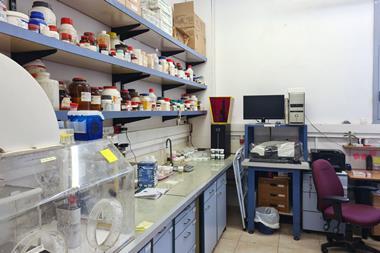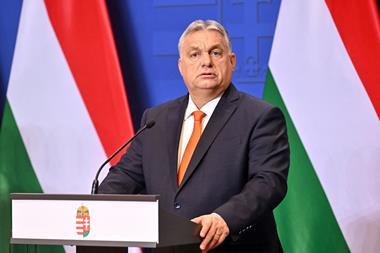When the six-day war ended in the summer of 1967, I was sure it had been my last war. I was then a 20-year-old officer in the Israeli army, expecting to complete the compulsory military service and start my undergraduate chemistry studies at the Technion. I kept that naive belief through Yom Kippur, 6 October 1973, when I was a 26-year-old graduate student at the Weizmann Institute. On that day, after hearing the news about military clashes at the Suez Canal, I kissed my wife and three-year-old daughter, promising them to be back the following day, and hitch-hiked to my military reserves base. I’ve never received a summons and never needed one.
I returned home seven months later, luckily in one piece but feeling decades older.
Now, 50 years later, and after a few other wars, I am once again volunteering to defend my country. But this time from its own government. If prime minister Benjamin Netanyahu and his coalition succeed in their proposed reforms, democracy in Israel will be eroded, and Israeli science will be damaged swiftly and irreversibly.
Politicians who pursue undemocratic systems create conditions for changes that were previously unthinkable
Over its 75-year history, Israel has been a healthy democracy with three independent branches of government – the legislative, the executive, and the judicial. Netanyahu has already gained complete control over the government and the parliament. His government’s recent legislative proposal for ‘judicial reform’ now implies a takeover of the entire judicial system, including the supreme court . With control over all three branches of government, Netanyahu could achieve an elected autocracy. This ill-judged legislation is already tearing the people of Israel apart, dividing the people’s army, and dismantling the economy.

The clouds of doubt are already convincing postdoctoral fellows and new faculty candidates to postpone their arrival, international collaborators have second thoughts, and the cancellation of international conferences has become frequent. One can watch the Hungarian precedence to anticipate the potential damage to Israeli science and technology. Following Viktor Orbán’s recent actions to consolidate power, the EU said it no longer considers Hungary a democratic state, with dire consequences for research funding. Academic freedom in Hungary has been restricted, universities have been closed and funds withheld from the Hungarian Academy of Sciences. Hungary has suffered from a massive brain drain.
Politicians who pursue undemocratic systems create conditions for changes that were previously unthinkable. Such politicians do not mourn the departure of their innovative scientists because outstanding scientists are outspoken, opinionated, critical, and argumentative. Authoritarian regimes consider them troublemakers, regardless of their enormous contribution to the national economy. Perhaps Netanyahu calculates that Israeli scientists would rather leave than watch their research environment deteriorating and see their children attending state schools controlled by ultra-orthodox supremacist elements of the coalition. If so, it is a glaring miscalculation.
Every scientist I’ve spoken to has assured me they have no intention of letting that happen here, nor any thoughts of leaving – they intend to stay and fight to save our democracy. We often meet on the mega-demonstration, marching together with our children, parents, and grandparents, and we are persistent, as we were in the Yom Kippur War. We join the unprecedentedly large numbers of angry citizens who take to the streets with flags, signs, whistles, drums, and loudspeakers, sweeping cities, bridges, and road junctions and blocking highways day and night. I bet an ocean of over 700,000 blue-and-white flags, 8% of Israel’s population, is visible from outer space. And the resistance turns fiercer and more prominent every week.
Like California and Taiwan, Israel is dominated by an immigrant culture that appreciates education, science, and technology. David Ben Gurion, Israel’s founder, and first prime minister prioritised the higher education system above the national economy and security. He insisted on genuine democracy, understanding that Israel would only meet its enormous challenges if all citizens were fully committed to the common goals.
These national priorities have deep roots. Long before the birth of Israel, when the country had no electricity, three of the world’s top universities were established to serve a population of just 200,000: the Technion (1924), the Hebrew University of Jerusalem (1925), and the Weizmann Institute of Science (1934). To understand how outrageous that number of universities per capita was, in the UK in 1930, 19 universities served a population of 46 million.
The descendants and followers of those incredible pioneers established the legendary Start-up Nation, the Israeli high-tech industry, and produced six Nobel laureates in chemistry. That is what we now feel at risk, and that is what we are fighting to save.
For us, Israeli scientists, and millions of other citizens, it is the second War of Independence, and we fight accordingly. It may be a long war, and we may lose a battle or two, but we’ll eventually win; simply because defeat is not an option. Furthermore, ending this war at its starting point is no longer acceptable. Our democracy must emerge stronger than before, secured, and protected for the foreseeable future.














No comments yet